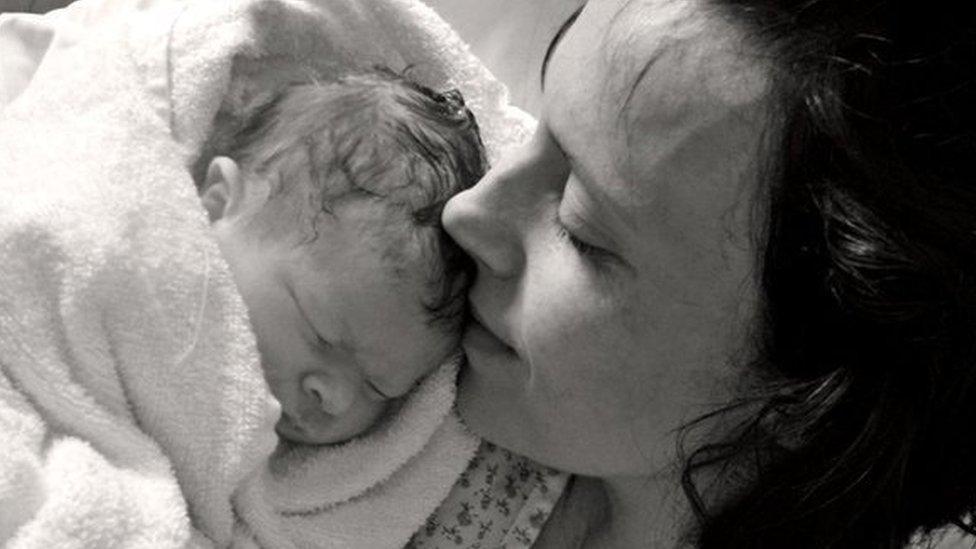Baby deaths cluster: Trust paid out millions in compensation
- Published
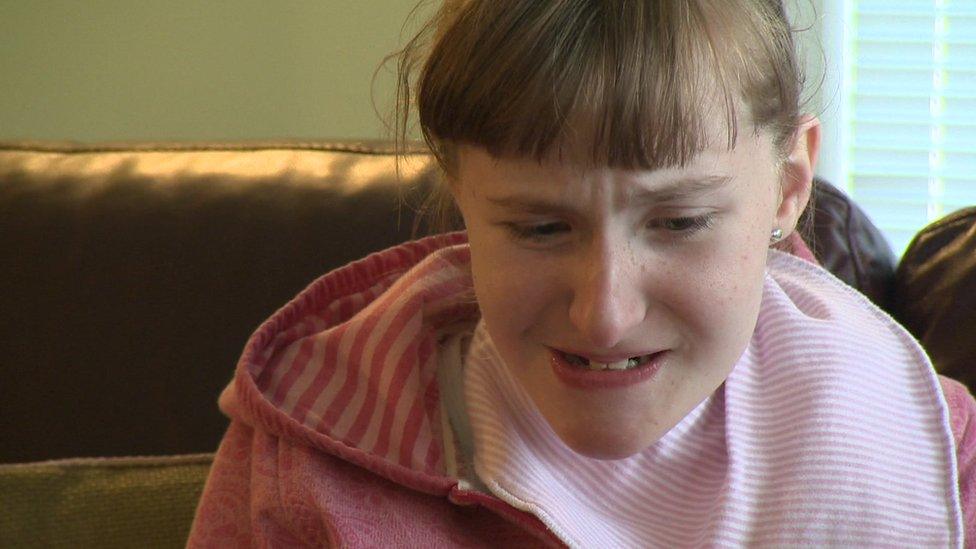
Olivia Morris was left with cerebral palsy after suffering a brain injury at birth
An NHS trust facing a review into maternity errors has paid out millions in compensation after similar mistakes led to babies born with brain injuries.
The health secretary has ordered a review into the deaths of at least five babies at the Shrewsbury and Telford Hospital Trust.
A law firm says it has 27 open cases into claims that mistakes at the trust led to brain injuries at birth.
The trust said the sums already paid out did not reflect current services.
A medical negligence charity says the trust is an "outlier" in terms of avoidable harm and has demanded a full inquiry.
'Doctors ignored me - my girls are gone'
Cluster of baby deaths probe ordered
Trust 'failed to investigate baby death'
Shrewsbury and Telford Hospital NHS Trust has been the focus of intense scrutiny since the BBC revealed last month that Health Secretary Jeremy Hunt had ordered a review into how the trust has investigated the deaths of babies caused by errors in labour.
There have been at least seven avoidable deaths at the trust between September 2014 and May 2016.
Failures to properly monitor and analyse the foetal heart rate - CTG traces - contributed to five of the deaths.
But the problems with CTG monitoring at the trust go back much further, according to a document the BBC has seen.

"Our family life is not as it should be"
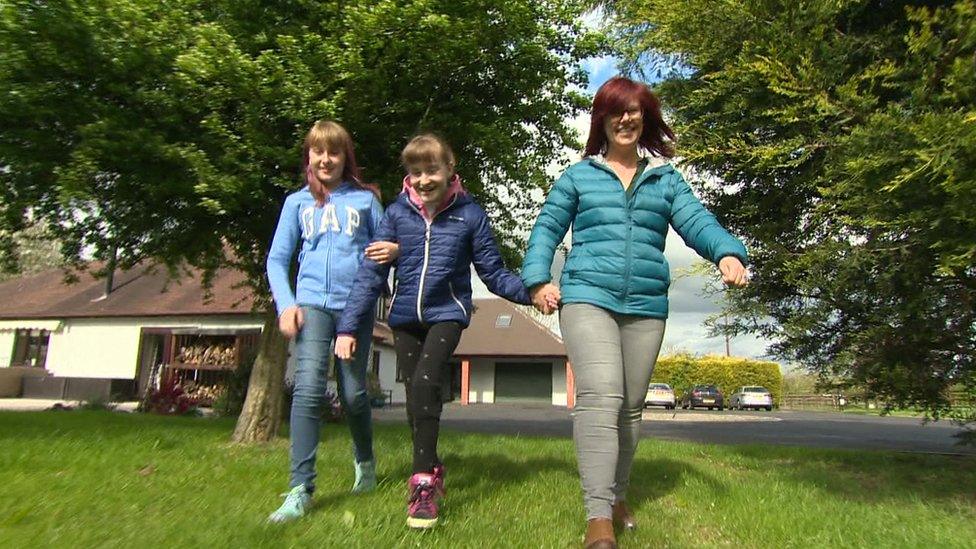
Beth and Olivia (centre) are identical twins born at the Royal Shrewsbury Hospital in 2005
Living with a child born with brain injuries is a daily struggle for the Morris family.
Beth and Olivia are identical twins born at the Royal Shrewsbury Hospital in 2005.
Beth is a happy, healthy 11-year-old, with friends and interests common to many young girls.
But a failure to promptly deliver her sister, as well as failing to spot she was in distress due to an error in properly monitoring her heart rate, means Olivia suffered a brain injury.
She has cerebral palsy - she struggles to walk, cannot talk and needs to be fed through a tube as she cannot swallow.
The trust has admitted liability.
"Our family life is not the same as it should be," said their mother Sharon Morris.
"Olivia can see Beth doing all the things that she wants to do.
"Beth has friends that she goes off and does various things with. Olivia doesn't have any friends - Olivia's best friend is her sister."
"She'll always live at home with us for the rest of her life. And she'll always have care for the rest of her life as well - she'll never live independently."

In July 2015, Dr Adam Gornall, an obstetrician at the trust, attended a maternity networking event in Manchester organised by the NHS Litigation Authority (NHSLA), now NHS Resolution.
The discussion was aimed at improving safety in maternity units in England and Dr Gornall revealed the scale of the problem the trust was facing in relation to foetal heart monitoring.
He told the meeting the trust had received one compensation claim for £4.4m relating to CTG interpretation after a child had been born with cerebral palsy.
Two other claims totalling nearly £150,000 were "directly related to the interpretation of CTGs" and they had received other claims "in which CTG interpretation was partially involved".
The trust was given £183,000 in May 2015 by the NHSLA to improve its CTG performance.
Dr Gornall told the meeting the money would be spent on new CTG equipment, a different approach to monitoring, e-learning, improved trained and changing behaviour.
However, in the five months following the July 2015 meeting, the BBC has learned that CTG errors at birth contributed to the deaths of three babies - one was still-born, one died within days, and a third died aged just four months.
An analysis the BBC has done of NHSLA figures shows in the past decade the trust has paid out nearly £25m in compensation and legal fees for maternity errors, when regulators told the trust to improve, with payments made for brain injuries being the single largest category.
Brain injuries at birth can occur for a number of reasons, including a failure to ensure oxygen gets to the baby's brain or a physical injury to the child's head - for instance the incorrect use of forceps during delivery.
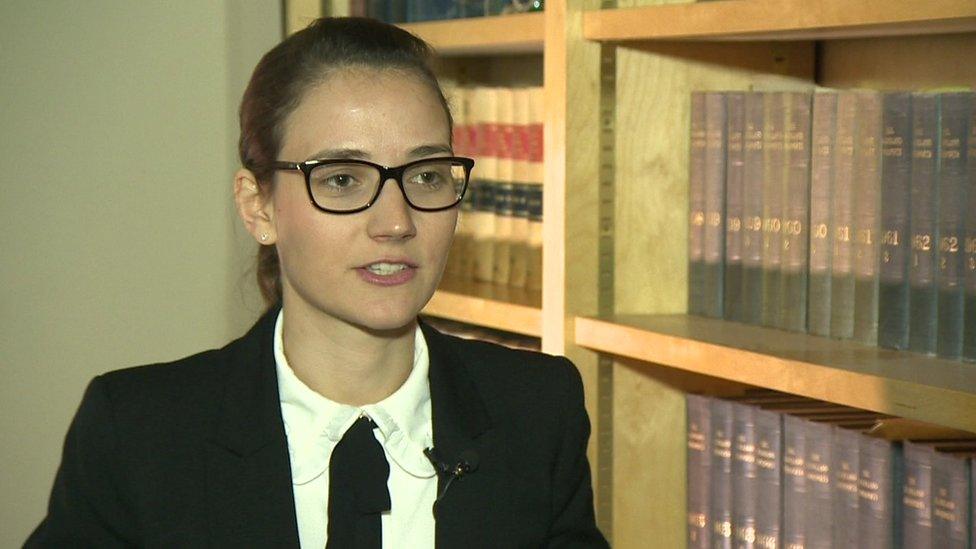
Beth Harrison said the number of families coming forward alleging errors is increasing
Figures provided to the BBC by medical negligence lawyers Lanyon Bowdler in Shrewsbury show they have 27 open investigations into allegations of brain injuries caused to babies at birth as a result of mistakes at the Shrewsbury and Telford trust since 2005.
Solicitor Beth Harrison said the number of families coming forward alleging errors is increasing, with 15 cases being opened in the past three years.
"We've seen a real increase in the number of people approaching us and cases that we've taken on. I think it's down to deterioration in the service and the standard of care. And people are also more aware that they can bring claims when things go wrong.
"Repeatedly we are seeing the same errors - failures in relation to heart trace monitoring and realising the baby is in distress, delays in taking women for an emergency caesarean and issues with the wrong use of forceps."
The firm says since the recent BBC reports, nine new families have contacted them alleging errors in labour at the trust - four say their child died, four say their child was born with a brain injury, while one is alleging the trust caused the death of a mother.
Compensation for brain injuries can run into millions of pounds due to the ongoing, sometimes lifetime needs of the victims.
The Shrewsbury and Telford trust's maternity department has paid out £24.3 million in compensation and legal fees since 2007, according to official NHS figures.
The money relates to at least 34 settled claims, including 14 brain injuries, eight for deaths of babies, one mother's death and 11 other mistakes, including babies born with physical injuries due to errors in labour.
The trust points out that it can take 'many years for claims to be brought and resolved' after the incidents occur.
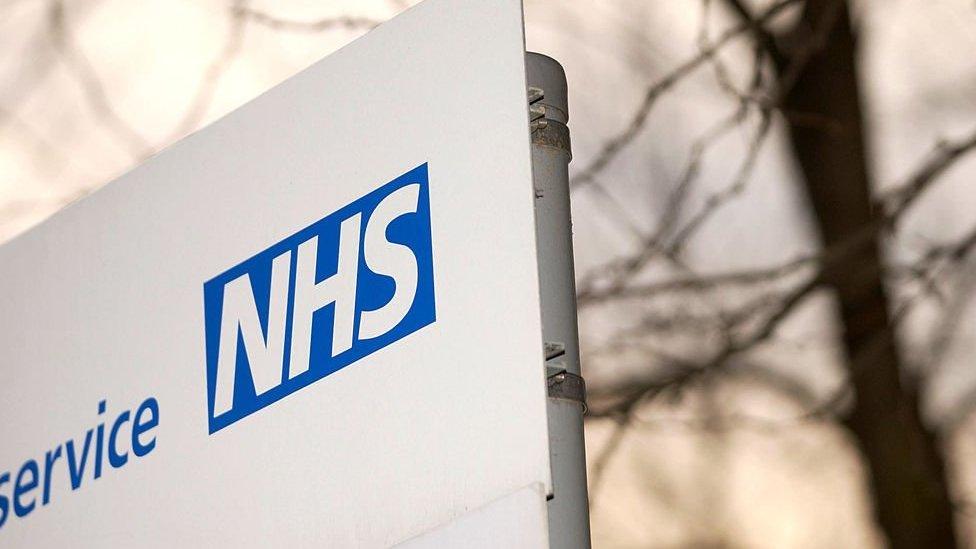
The trust says sums paid out in recent years offer little insight into maternity services since 2007
The total compensation figure is among the highest paid out by comparable obstetrics units - based on the number of deliveries and type of unit as categorised by researchers at the official MBRRACE-UK study into perinatal deaths - over the past decade.
Taken alongside the number of avoidable deaths at the trust, the charity Action against Medical Accidents (AVMA) has added to calls for a much wider inquiry into the trust.
"These figures are very worrying," the charity's chief executive Peter Walsh said.
"It seems to me there should be a fully independent and in-depth investigation into what has been going on and the root causes of the lapses in patient safety that have been causing such terrible harm.
"What has been arranged so far is nowhere near enough. The new Healthcare Safety Investigation Branch should be called in to get to the bottom of the problems at this trust."
In a statement, the Shrewsbury and Telford Hospital NHS Trust said it would not comment in detail in case it prejudiced the ongoing review into maternity services.
However, the trust said: "Claims can be and frequently are brought and resolved many years after incidents occur.
"Taking this into account, along with the further period taken up by the litigation process itself, which can last a number of years, the sums paid out in recent years offer little insight into the maternity services provided by the Trust since 2007.
"Since 2007, NHS Resolution has received 50 claims for compensation relating to maternity on behalf of the Trust.
"However, the majority of these claims are in connection with incidents which happened before 2007.
"Of these 50 claims, only one claim for brain injury occurred after 2007."


- Published12 April 2017
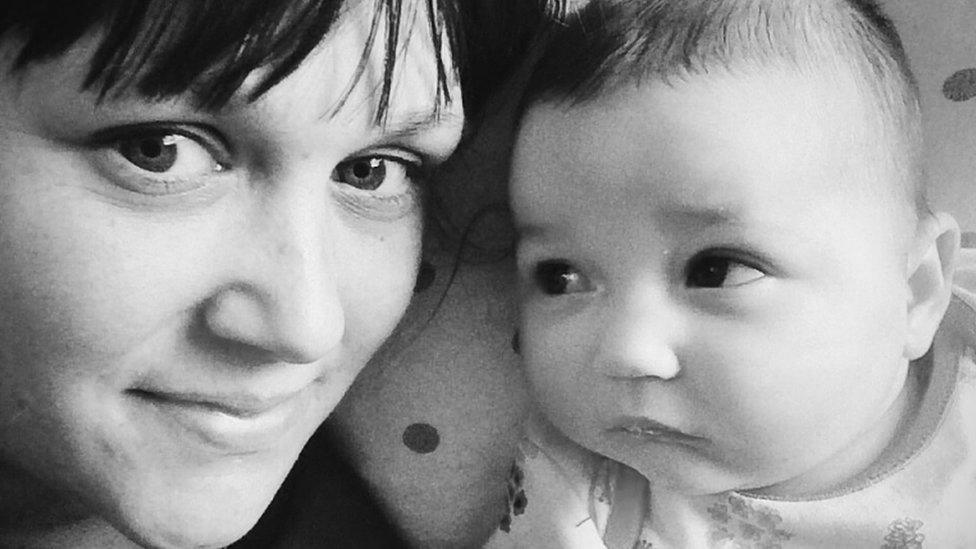
- Published12 April 2017
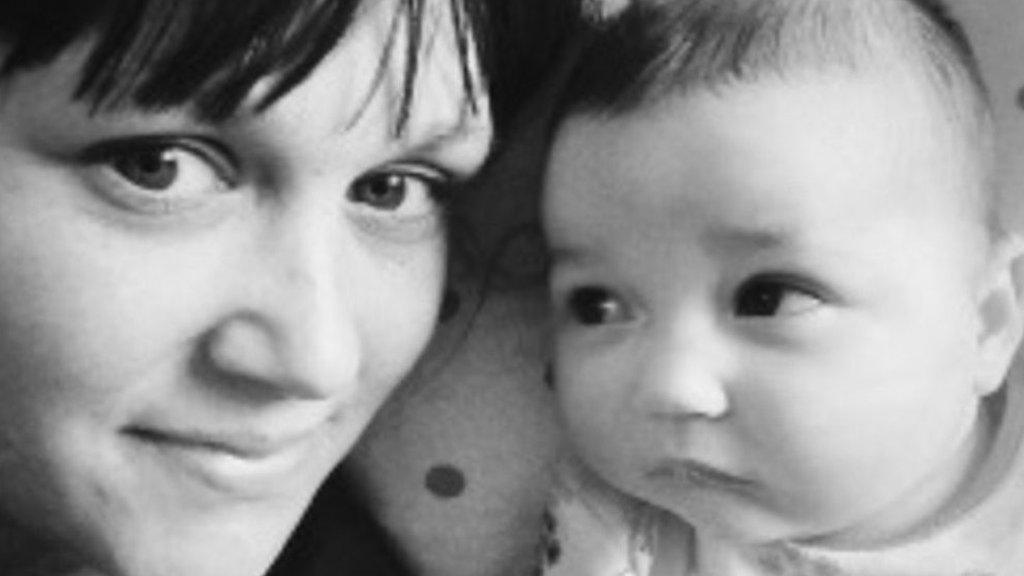
- Published12 April 2017
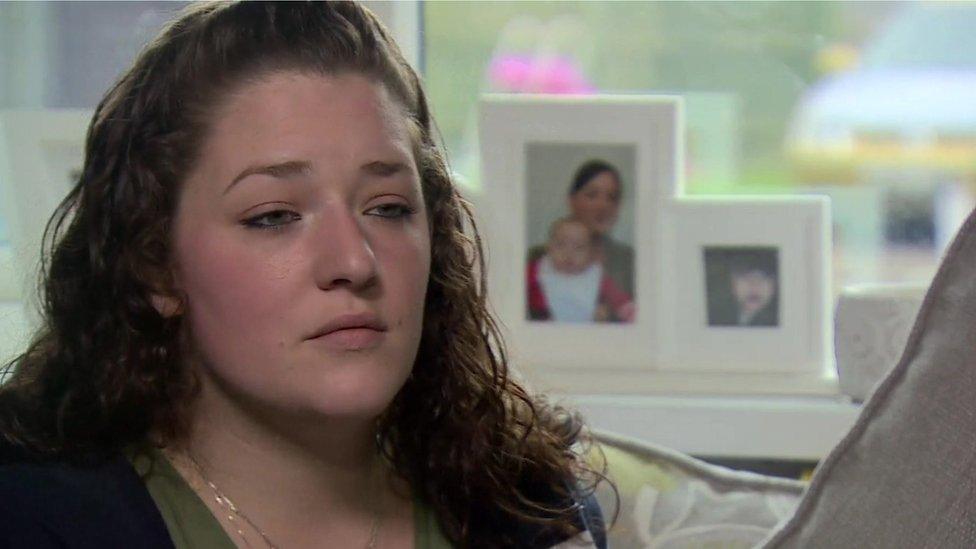
- Published1 April 2016
